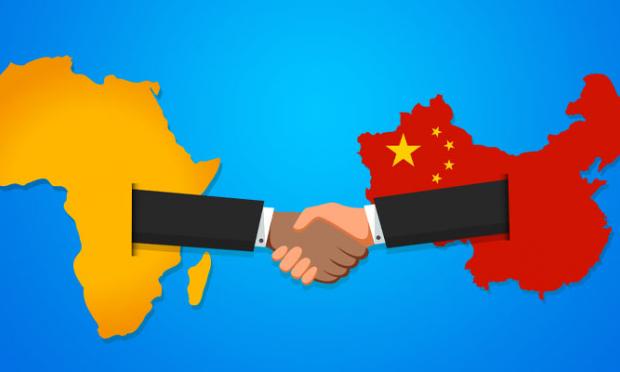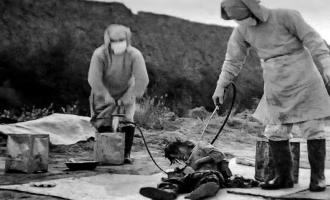Belt Road Initiative (BRI), the China-driven infrastructure development mega-project, has made inroads in deep in Africa. But there have been concerns about the risk these African countries face as loan agreements are said to be detrimental to their sovereignty. Now, there is another area that has made the BRI is under the scanner. It has become a great threat to the wildlife-rich ecosystem and local livelihoods of the continent. One such project is USD 3.5 billion East African Crude Oil Pipeline project (EACOP). Now, campaigns are being held to stop the project to prevent irreversible damages to the people of Africa, which has made some banks opt out of the project.
China National Offshore Oil Corporation (CNOOC) is building a 1,440 km crude oil pipeline from Uganda's Albertine region to the Tanzanian seaport of Tanga. Since Uganda’s crude oil is highly viscous, the pipeline will have to be remained heated to allow oil to flow. This is going to have an adverse impact on the environment. As many as 263 local and global non-profit organisations have opposed the project calling it "extensively documented risks". The campaigners have made an appeal to every bank not to fund the project due to its negative impacts on humans, their rights and livelihoods, water resources, and the environment. “These include: significant human rights impacts to local people through physical displacement and threats to incomes and livelihoods; unacceptable risks to water, biodiversity, and natural habitats; as well as unlocking a new source of carbon emissions that
will either prove financially unviable or produce unacceptable climate harm,” they said in a letter to banks.
Many poor countries across Africa have opted for “cheap” Chinese loans to build airports, railways, buildings, telecommunication infrastructures. Farmers, forest-dependent communities, environmentalists have started protesting against the China National Offshore Oil Company (CNOOC) -led pipeline project, which has stakes of international giant Total as well. Heating stations and high voltage lines to heat oil will cause the emission of 33 million tonnes of CO2 every year.
The campaigners have claimed that the EACOP has going to unlock commercial exploitation of multiple oil fields including eco-
sensitive Uganda’s protected Murchison Falls National Park, which they said was “incompatible with the goals of the Paris Climate Agreement” and “manifestly irresponsible” when the catastrophic impacts of global warming getting increasingly clear.
Now, young climate activist Greta Thunberg has thrown her weight behind the fight against EACOP. Also, World Wildlife Fund (WWF) has estimated about 2,000 square km of protected wildlife habitat in Biharamulo Game Reserve and Wembere Steppe Key Biodiversity Area will be significantly affected by the oil pipeline project. 5The negative impacts would be habitat disturbance, fragmentation, and increased risk of wildlife poaching. The illegal wildlife trade and poaching for meat and ivory are expected to increase as the oil project will degrade important wildlife corridors for the
Eastern Chimpanzee and the African Elephant.
Global organisation Oxfam found the pipeline project will displace about14,000 households as well as decrease their household income and reduces their standard of living. “EACOP project presents specific risks and challenges to women and girls that would be disproportionately affected by various forms of economic or other social exclusion,” said the Oxfam research paper.6 The pipeline project will also destroy cultural goods and nature-based practices, which provide essential material for culturally adequate housing, clothing, or diet. It will also lead to the demolition and relocation of graves, worship places, shrines,
and other sacred sites.
There is a high risk of freshwater pollution and degradation of water resources especially in the over 400 km stretch of the Lake Victoria basin thanks to the pipeline. The basin provides livelihoods to over 30 million people.
There are high chances of oil pipelines spill in the area as over 300 earthquakes with a magnitude greater than 4.5 were registered in the past two decades.
Irene Batebe, Uganda's commissioner in charge of oil operation, agreed that the project poses major environmental and human rights. “The top priority should be to deal with the concerns of communities suffering from the project, not start drilling at all cost,” she said even as documenting benefits of the
project in generating employments.
Recently, as many as 178 villagers that are going to be affected held a rally against the pipeline project. There have been protests across
Africa.
Ugandan climate justice activist Vanessa Nakate said “We have no future in the extraction of oil because it only means destroying the livelihoods of the people and the planet," Nakate added. "It is time to
choose people above pipelines. This is why we cannot accept the construction of the EACOP.” The points raised by campaigners are yielding results in their favour. South Africa's Standard Bank has
announced its participation in the EACOP will be suspended until the concerns over environmental degradation are resolved.















